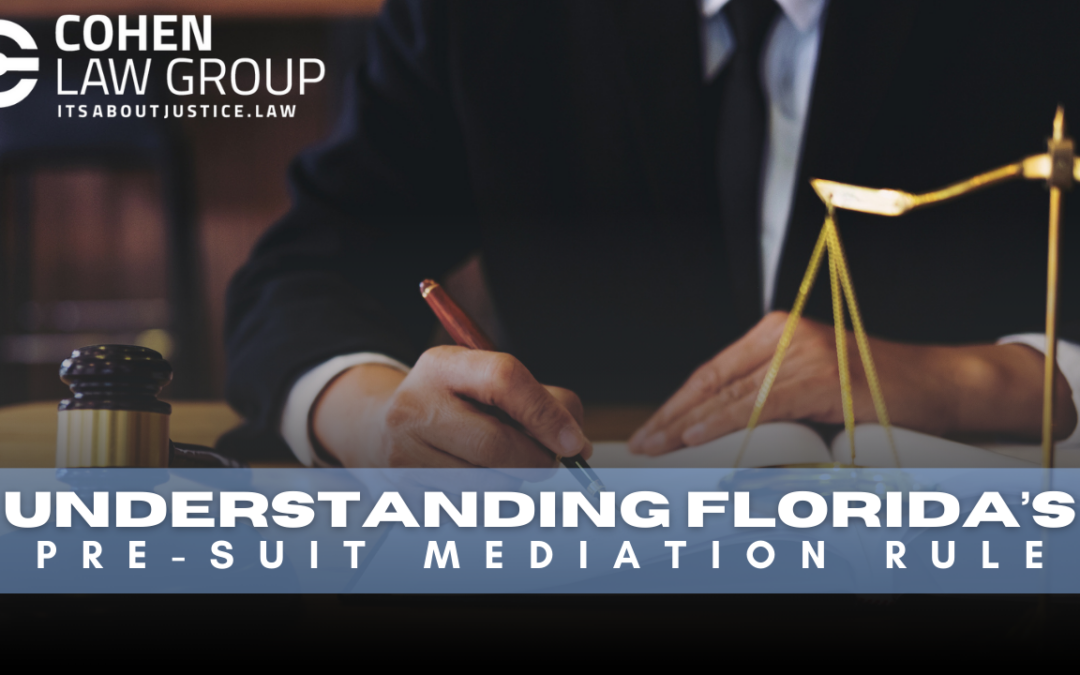If you have made an insurance claim in Florida, you may have received a letter from your insurance company informing you that the Chief Financial Officer for the state of Florida has adopted a rule giving you a right to attend mediation with your insurer. The letter probably then explained the process, the 21 day time period to resolve before meditation, and some other very official sounding information. It may sound scary or intimidating. Unless you work in the property insurance industry, it probably is confusing.
Should you, do it?
Generally, yes, if you would like to do so. But either way, you should not be scared.
Pre suit mediation, just like mediation during litigation (while a law suit is pending, but before trial) gives you an opportunity to resolve the dispute, and, depending on the insurance company, may get you a better result than the original coverage decision. However, it is highly recommended to secure legal representation before attending the mediation. The process is informal and you should not be nervous or concerned. However, insurance companies do this all the time, and too often take advantage of the uninitiated, making you feel as though a few thousand extra dollars is a good deal for you, when really your claim was worth tens of thousands more. Thus, they use their experience to get away with underpaying your claim.
An experienced attorney will discuss the facts of your case, be able to recognize and explain strengths and weaknesses, and can then represent you during the mediation and make sure you do not get short changed. Often, the mere presence of the attorney will alert the insurance company that this claim cannot be escaped for pennies on the dollar. Other times, your attorney may convince the insurance company at the pre suit mediation, by arguing the facts, that the claim is worth more than they think. Alternatively, if they are not willing to pay the real value of the claim now, your attorney can help you understand the options. You are always welcome to settle early for a lesser amount than you are owed. Your attorney has to do what you want to do. But, with counsel, you will at least be informed, and if you so desire, you can fight the claim and pursue the full payment through litigation and to trial if necessary.
Thomas Boyd, ESQ.

